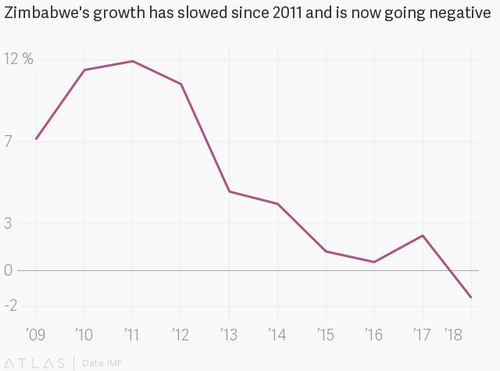But as I get closer to turning 30, much to my surprise, I’ve found myself turning to hostels more and more. It started when I impulsively booked a solo weekend in Copenhagen.
While the flight from London was super cheap (thanks, Norwegian), I quickly realized my accommodation options were decidedly not. Unable to afford a Scandi-priced hotel or Airbnb on my own, I took a risk on a female dorm in a well reviewed hipster-style hostel.
For the first half of my twenties, I almost completely avoided hostels. With the exception of some study abroad stints in “backpackers”, as they’re called in South Africa, the years of my youth that would typically be associated with dorm life coincided with the rise of Airbnb.
Upon arrival, I found myself drinking super cheap beer (at least by Copenhagen standards), while using the super fast wifi in the hostel’s lounge, which could have easily passed for a trendy bar. I even befriended some locals-who were using the said lounge as a co-working space-who showed me around town that weekend. Just to top things off, the hostel had free drop-in yoga classes, a bike shop, and a tattoo parlor, for those that wanted to pay extra to get inked. Why hadn’t I done this before?
Indeed, if you think you’re too old or too picky to book a hostel, now is the time to think again. It’s a bit counterintuitive, but hostels are having somewhat of a moment in the luxury travel market. Hotel groups known for their boutique design hotels are getting into the hostel/hotel hybrid game.
There’s Grupo Habita’s ‘Downtown Beds’ in Mexico City, which is built out of a 17th Century Palace, and its Robey Hall location in Chicago; Generator Hostels, which offers “experience and design-led” hostels in cities across Europe; and Freehand Hotels which operates boutique hotels with hostel-style bunks in Miami, LA, Chicago, and soon, New York. Even Hilton is rumored to be getting in on the high brow hostel trend in a bid to-you guessed it-woo millennials.

In addition to these newly-luxe vibes, hostels have an obvious benefit over similarly-priced Airbnbs: they are much easier to book, and the check-in process is frictionless no matter what time you arrive, as they’re usually staffed 24 hours. Another little-known perk of a nice hostel? They offer a free and appealing place to hang out.
Unlike lounging in a hotel lobby (where the booze and snacks will be twice the price) or an Airbnb (which may offer a living room, but likely not a sprawling lobby) a well-chosen hostel’s communal space or lounge tends to be a great place to take a break, do some work, or be social-if that’s your thing.

The hugely appealing rooftop terrace at Hop Inn HK.
A wonderful Hong Kong hostel I stayed in earlier this year had a roof terrace with $1 Tsingtao beers (which were even cheaper than the ones sold in 7-Eleven) where I spent many hours reading books and eating fried street snacks I’d bought just below. Another hostel I visited in Bruges had a bar with a better Belgian beer selection-and happy hour-than any other place I visited on the trip. Had these been hotels, they would’ve been out of my price range for more than a drink or two. But since they were hostels, I could live it up-and theoretically make some friends along the way.
So, how old is too old to stay in a hostel? Never-as long as you know what you’re looking for, are extra-discerning, and book wisely. Here’s how to do just that.
Read reviews very carefully: In general, when booking a hostel, paying close attention to the reviews is even more vital than with traditional hotels. I tend to only book hostels which have excellent, borderline-raving reviews. I pay particular attention to what prior visitors say about cleanliness, as well as the communal space or bar. Remember: you likely won’t want to spend a whole lot of time in your dorm, so the communal spot is where you will read, eat, drink a beer or coffee, rest, and work on your laptop when you’re not exploring. So make sure it looks appealing.

The common area of Grupo Habita’s “Downtown Beds” location in Mexico City.
Consider booking as a group: While hostels are ideal when you’re a solo traveler who doesn’t have the option of splitting a room rate with a buddy, they can also be a cheaper alternative for groups or couples looking for a private room. Most hostels offer a range of different sized rooms, including singles or doubles and quads, which are usually cheaper than a hotel when booking in advance. As long as your group is fine with sleeping on bunk beds-though many hostels offer regular beds, too-it’s a great way to cut back on your accommodation spend.
Don’t stay in a hostel without linens: A key indicator of the type of hostel you’re signing up for is whether or not it provides linens. If it doesn’t, it’s likely a bare-bones option intended for hardcore backpackers, so don’t bother. On the flipside, if a review mentions that a location had nice linens, that’s a good bet. Though note: hostels usually provide a single towel to guests, or make you pay to borrow one. If you’re used to relative towel wealth, consider bringing your own. Better yet, buy one of these amazingly effective and lightweight travel towels, so you’ll never be caught without a way to dry off.
You don’t have to be chatty: The thing about hostels that freaks most people out is sharing a room with people they don’t know. This can take some getting used to, but remember, this isn’t summer camp. If you don’t want to chat with your roommates, you don’t have to. (I usually don’t beyond initial pleasantries, and dorm-mates tend to respect that). Most beds have a curtain, power plug, and reading light so you can have privacy and power whether the lights or on or off. If you’re in a dorm, you will need to go to the communal bathroom for privacy, so make sure your packing is organized enough to keep your toiletries and clothing accessible throughout your stay. Ear plugs and an eye mask are helpful-and better yet, a white noise app on your phone.
Safety: Another reason people shy away from hostels is safety. And while it’s true that sharing a room with others does naturally imply a little more risk than being on your own, hostels are are generally staffed 24/7 and rarely isolated enough to feel risky. That said, for reasons of comfort, I always opt for a females-only dorm, which almost all hostels offer for a slightly increased rate. When it comes to your stuff, a small padlock or luggage lock is a must for dorm life, as most rooms offer small lockers to put your belongings when you’re away. If you’re worried about some of your belongings more than others (your laptop, for example) you can also ask the front desk for a more secure storage option.
Mix it up: Hostels work best when you really want to explore the place you’re going, not lap up the luxury of a cushy hotel bed or pool. That said, staying three nights in a hostel and one or two nights in a nice hotel is a great way to have a high-brow, low-brow experience of a place while still sticking to an Airbnb-level budget. Personally, I’ve found that the ideal length of time to stay in a hostel is two to three nights. After that, it’s a good memory but I’m ready for some privacy.


